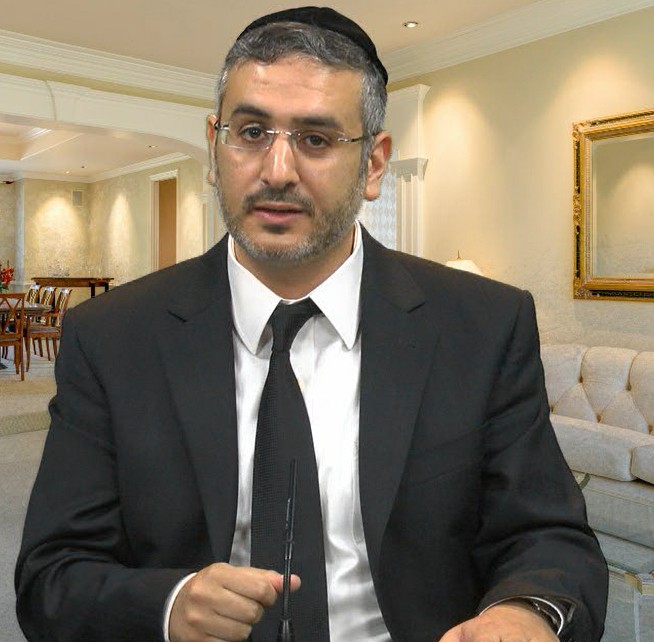Personality Development
Facing the Spotlight: Overcoming Social Anxiety One Step at a Time
Understanding the roots of social anxiety and learning how to break free.
 (Photo illustration: shutterstock)
(Photo illustration: shutterstock)“Eric, can you come into my office for a moment?” the manager called, walking into his room.
Ugh! Why now? He probably wants me to present the report findings tomorrow in front of everyone, Eric's mind started racing. The day was going so well, why ruin it now?
Here it comes- the rapid heartbeat, the pressure, oh no!
Eric entered the manager’s office. “I’d like you to present the report conclusions at tomorrow’s weekly meeting,” the words reached him like a distant echo.
“Alright,” Eric responded. Last week, he had managed to dodge the task, but now he couldn’t find a way out.
His heart pounded faster as he walked back to his desk. He could barely sit down. And tomorrow? What will happen tomorrow?How will I manage to present the report? Just seeing all their eyes on me- I’ll probably blush, maybe even collapse from the stress. They’ll all think I’m weird, pathetic, and...the thoughts spiraled in his mind.
Needless to say, the next day, Eric struggled to deliver the report. The experience was a nightmare. His “prophecy” had fulfilled itself.
Public Speaking Anxiety. Social Anxiety. Meet the hidden struggle of 12–13% of the population.
Why does it happen, and how can we deal with it?
People with social anxiety fear any situation where they feel “on display"- any scenario where they don’t blend into the background such as meeting new people, talking to authority figures, asking others for something, speaking in public, or even returning an item at the store.
They often avoid crowded places, won’t lead prayer in synagogue, and tend to speak softly without making eye contact. Some may be overly careful about their appearance and others dress inconspicuously to avoid standing out.
The challenge with social anxiety is twofold:
The physical symptoms: rapid heartbeat, cold sweats, trembling, blushing, etc.
The functional impact: needing to leave the house at off-peak times, taking longer routes to avoid people, always trying to please others to avoid conflict. Many avoid promotions or new opportunities because they don’t dare to speak up or ask for raises. They skip parties and social events and their lives can be very restricted.
Of course, not all shyness is a disorder. There is healthy modesty, and some people are genuinely comfortable in low-key roles. It depends on whether the behavior interferes with their life, or the lives of those around them.
The sages praised modesty, yet warned: “The shy person cannot learn.” That’s the difference between positive and negative modesty. When shyness becomes a barrier to life, it’s a problem.
 Hagai Tzadok
Hagai TzadokMoses is described as the humblest man on earth, but he also boldly confronted Korach’s rebellion. This is not a contradiction- a person can know their worth and still be humble. It’s all about timing, place, and balance.
Sometimes, a person might idealize their behavior. “I’m just humble, I don’t like attention.” One man told me he avoids social interaction because he’s guarding his eyes. While that’s a valid spiritual value, if it coincides with multiple clear signs of social anxiety, one must ask: Is this truly idealism, or a cover for anxiety?
A useful self-check:
Do I feel joy from my behavior- or distress?
Do I act this way in non-social situations too?
Do I follow other spiritual disciplines consistently?
If the answer is distress, inconsistency, or selectiveness, this could be anxiety hiding behind justification.
What causes social anxiety?
Social anxiety stems from two beliefs:
“People are critical, judgmental, and have high standards.”
“I’m inadequate, unworthy, and incapable.”
This creates the feeling that social situations must be avoided because “Everyone will notice how weird and pathetic I am.” They focus only on the negative in every social situation and are sure that people are laughing at them or that they’ve messed up.
What can be done?
While this space doesn’t allow for full treatment plans, we can offer effective strategies for reducing social anxiety and support for loved ones.
You are not strange.
12–13% of the population (1,200 to 1,300 people out of every 10,000) share this experience. You are valuable and capable, even if your mind tells you otherwise.
The most important tool is what CBT (Cognitive Behavioral Therapy) calls "Exposure."
This is the opposite of avoidance. Avoidance fuels anxiety- every time you avoid a situation, you send yourself the message: “This is dangerous.” It reinforces the fear.
If you’ve never tested what happens when you make eye contact in conversation, or walk through a crowd, you’ll never learn that your fears may not come true. Only by experiencing the situation can you disprove the belief and reduce the anxiety.
Step-by-step approach:
List the situations your anxiety makes you avoid.
Leading prayers
Asking your boss for something
Asking a rabbi a question
Returning a product to a store
Walking through a crowded place
Rank them from least to most stressful.
Start with the least stressful one. Expose yourself to the situation. Feel the discomfort- don’t flee from it or suppress it. Stay with the feeling.
I once worked with someone who feared social interactions. After building a "fear hierarchy," we chose this task: he needed to buy an item at the store, go to the main checkout and ask for a refund. At first, it was very hard. After 4–5 attempts, it barely bothered him.
Exposure must be done correctly. If your anxiety is severe, do not try this alone. Seek guidance from a qualified therapist because improper exposure can backfire.

